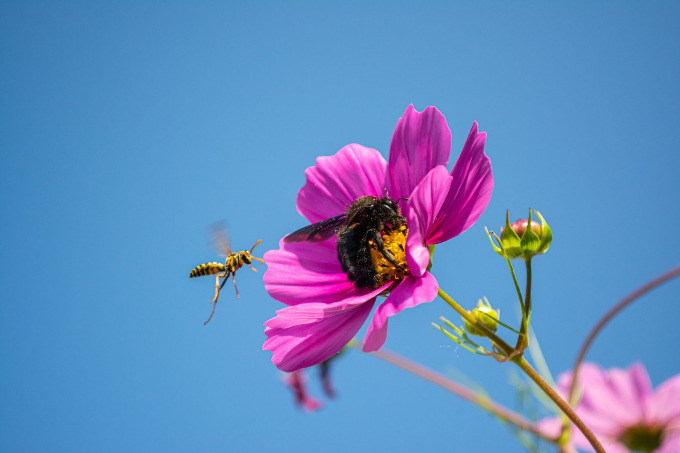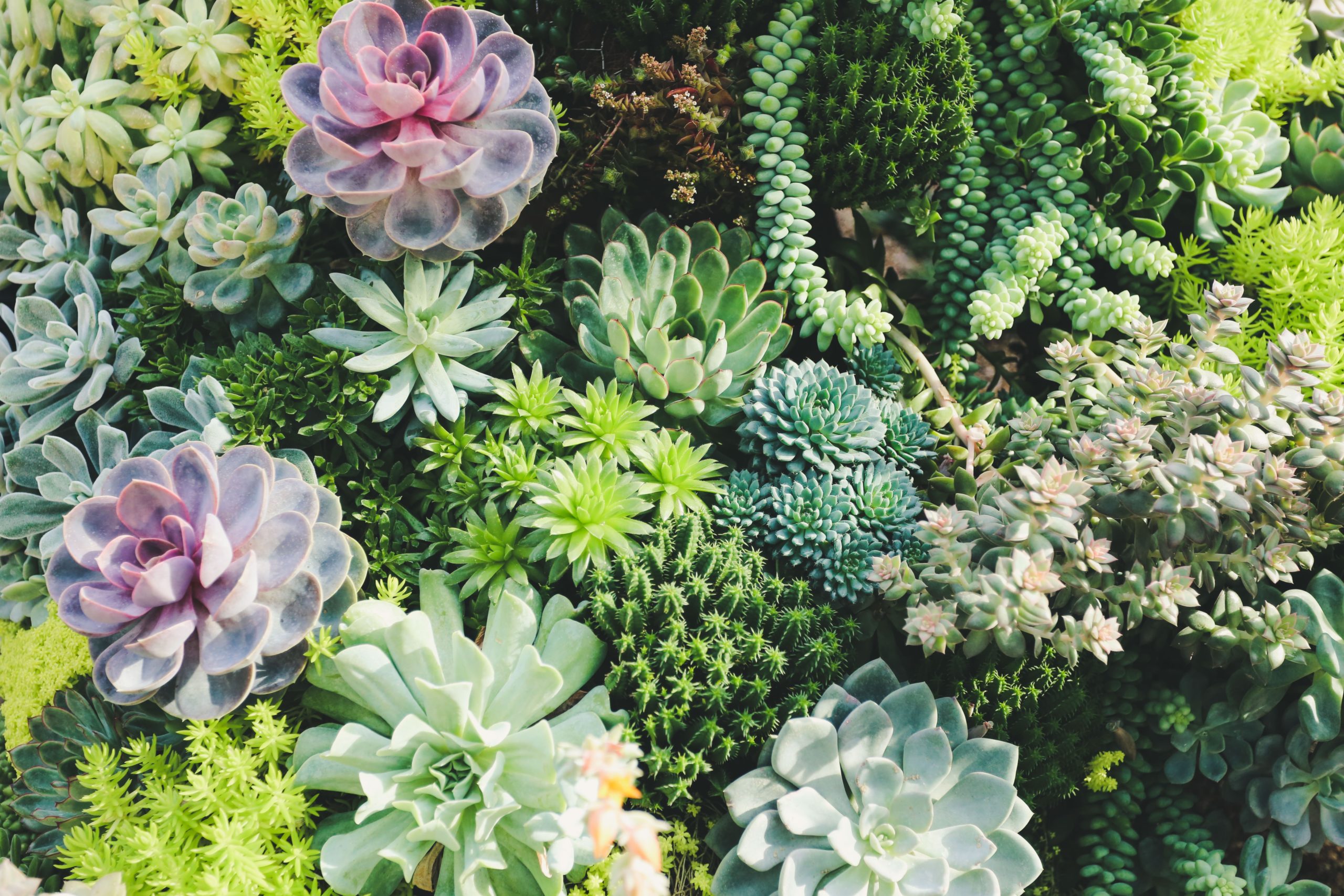
Environment / Lifestyle /
There has been a rise in organic gardening in recent years, forgoing artificial fertilisers in favour of animal manure or bark mulch, and swapping toxic metaldehyde-based slug pellets for mesh coverings or equally effective but less damaging ferrous sulphate.
By switching to working with the wildlife in your garden, rather than against it, many are experiencing greater equilibrium within their gardens. Choosing organic fertiliser promotes the health of the invertebrates, which in turn attracts more birds and wildlife such as hedgehogs, which naturally act as pest control.
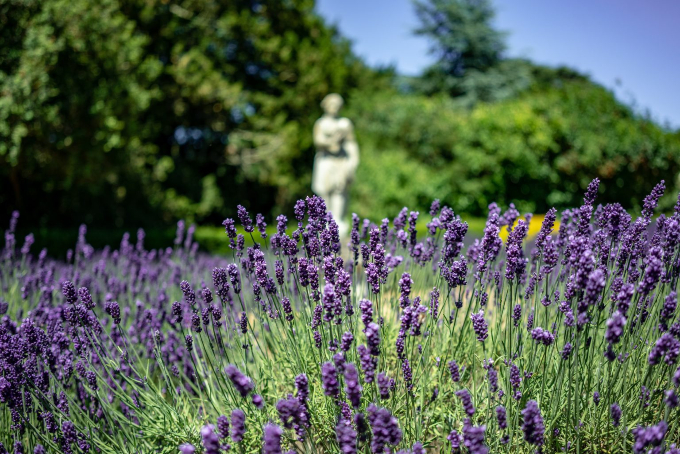
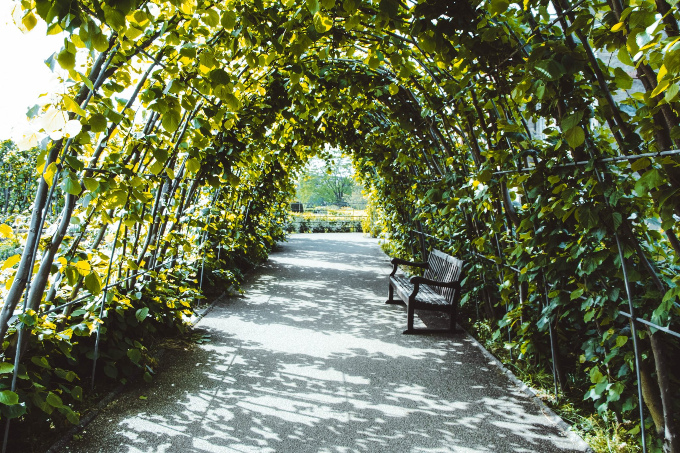
One of the less eco-friendly aspects of most gardens is their ability to guzzle water. Lawns, especially, are particularly thirsty, thanks to having much shallower roots than native wild grasses. Constant mowing prevents roots from spreading deeper, as energy is used instead to grow and repair, so lawns require endless watering in summer to look good.
Moving away from traditional lawn, or at least allowing grass to grow long for most of the year will protect the grass and soil, as well as provide habitats to numerous invertebrates. We’re currently in the middle of No Mow May, a campaign aimed at ensuring the health of our garden bees, butterflies and other wildlife, so now is the perfect time to start!
Investing in a water butt is invaluable when it comes to watering plants. Rainwater collects from existing roof guttering, providing a readily available (and free) water source. Rainwater contains many nutrients that tap water doesn’t, so water butt water will benefit your plants, your wallet and the environment.
Better yet, replace some of your lawn with native planting. Native plants are specifically adapted to deal with UK weather, so require very little maintenance to keep healthy. They also provide cover, breeding grounds and food sources for wildlife.
Creating your own compost heap might not sound like the most exciting activity in the world, but it has a myriad of benefits, not least providing excellent nutrients for your garden plants. Many compost sources can be both costly and ecologically damaging, particularly peat.
Peat compost is cheap to mine and readily available, but its extraction releases millions of tonnes of CO2 each year. Since peat is essentially a semi-formed fossil fuel, the destruction of peat ecosystems contributed to more than one tenth of global fossil fuel emissions. If you don’t have the space to have a compost heap/bin, use peat-free fertiliser or animal manure.
Another benefit of creating your own compost heap is the ability to get rid of garden and food waste. 30% of food is wasted globally, and composting at least provides some returns on unavoidable waste. While some regions have food and green waste bins, these are often incinerated for energy, rather than composted, so avoid unless the only other option is landfill.
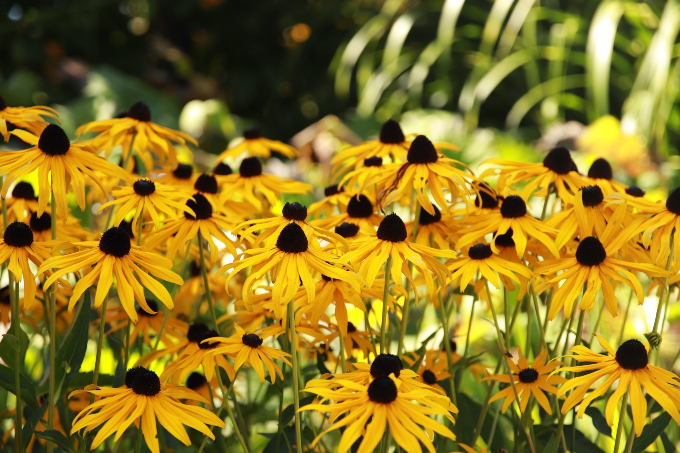
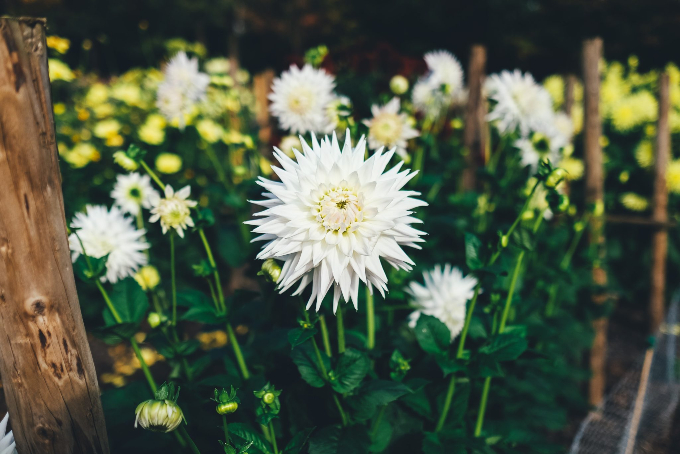
Creating the perfect garden is an exciting but huge job. If you’re carrying out heavy landscaping works, consider what materials you’re using and whether you can reuse the materials you already have. Second-hand sites such as Gumtree and Facebook Marketplace often provide cheap and local landscaping materials such as power tools, hardcore and sand.
Many modern decking options are made from recycled plastics formed to look like wood (composite decking). This is more eco-friendly than traditional wooden decking as it protects forests that would otherwise be felled, and provides further uses for recycled plastics. They’re often lower maintenance, longer lasting and harder-wearing than traditional decking too.
When looking for stone for walls, see what stone is local to your area. Not only is local stone easier (and greener) to transport, it often also fits better within the landscape and looks more natural.
Many of the above points take into account the local wildlife, and if you want your garden to be interesting as well as beautiful, the ecosystem within it should be central to any garden plans.
Place bird feeders close to trees or large shrubs to maximise the number of visiting birds. Make sure to keep them up year-round – while winter is the hardest time for birds, many will also be nesting throughout the spring and summer, and with extra mouths to feed, the supplementary food is vital. Choose multiple food options – suet balls, nuts and various seed mixes all attract different types of birds. Nest boxes also provide much needed (and rapidly declining) nesting spaces for native birds. Make sure to place in a sheltered area according to the species you want to attract, and don’t get disheartened if you don’t get visitors for a few seasons – they’ll come!
Watering holes and bird baths are equally useful for birds and invertebrate life. Ponds, too, attract a whole host of wildlife you wouldn’t otherwise see if your garden. Water attracts invertebrates, which attract birds, bats and other wildlife.
While cleaning your garden and keeping it neat and tidy is what many would prefer, leaving some ‘mess’ (scattered logs, leaf litter, empty plant pots) can provide useful habitats for hedgehogs. Hedgehogs are great for eating slugs and other plant-attacking pests, so the more you can attract, the better! Consider scattering dog or cat food for them and providing water. Hedgehog numbers have been in decline for decades, and they need all the help they can get.
